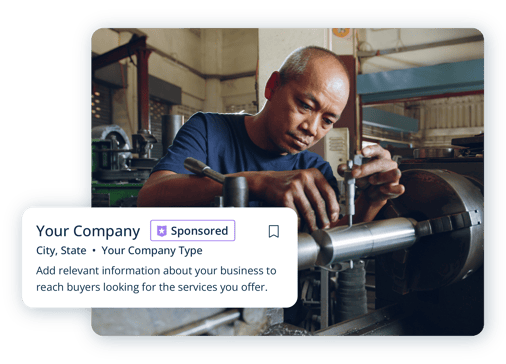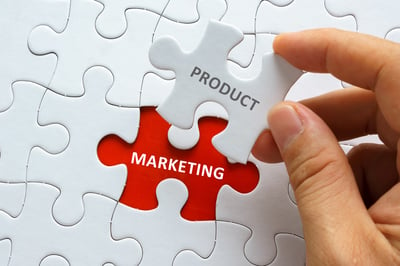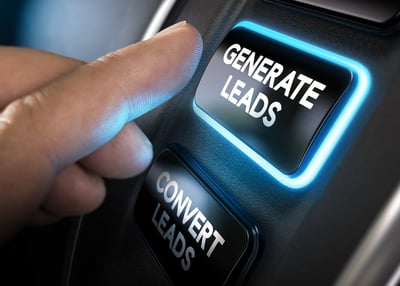
Showcase Your Certifications: How an Updated Thomas Profile Connects You With the Right Buyers
For procurement professionals and engineers, the sourcing process is often a high-stakes puzzle. Finding a supplier isn’t just about who can supply the product or service they need; it’s about who can meet rigorous standards for quality, safety, security, and sustainability. Whether a buyer is looking for a CMMC-certified semiconductor manufacturer or an SQF-certified private label supplier of food flavorings, certain certifications are non-negotiable.
Read More »
Thomas Is the Search Engine Made for Industry
If you’re an industrial procurement professional, you might be familiar with the following scenario: You conduct an internet search for what you need, only to be met with results that aren’t relevant to industrial buyers. While general search engines like Google provide a broad range of options, they often lack the precision required for specialized industrial needs.
Read More »
Maximize ROI with Performance-Based Listings
If you’ve ever managed a digital advertising budget, you know the challenge of proving return on investment. Traditional advertising often relies on impressions—the number of times your ad is shown—which doesn't always translate to genuine customer interest or engagement. That's why Thomas is reshaping the advertising landscape with Performance-Based Listings, a pay-per-click advertising model.


The Power of Thomasnet Advertising: More Exposure, Better Leads
Thomasnet® has been a trusted destination for industrial sourcing for more than 125 years. Our platform has more than 1 million active buyers who return to Thomasnet again and again to search our database of 500,000 North American manufacturers for the products and services that keep their supply chains strong.
In this article, we’ll go over the basics of the platform and how a Thomasnet listing can benefit industrial companies like yours.
Read More »

7 Ways Thomas Can Help You Supercharge Industrial Sourcing
Here at Thomas, we've been powering North America’s largest and most active network of B2B buyers and industrial/commercial suppliers for more than 120 years. We understand the challenge of finding the best and most reliable suppliers.
That's why we developed the Thomas Network to help you search for qualified manufacturers, distributors, and service companies. Searching on Thomas is free, and for the best experience we recommend that you register so you can have full access to view suppliers’ certifications and download white papers. We know you're busy, so let us quickly walk you through our top eight features you can try today:
Read More »

Product Marketing vs. Demand Generation: Their Key Differences
Marketing products and planning campaigns to create customer demand can be essential to a marketer's strategy for attracting new customers. In product marketing, the focus is on showing a product or service to potential customers by highlighting its benefits. On the other hand, demand generation aims to create interest and produce new potential customer contacts through various channels and marketing strategies.
Read More »
Lead Generation vs. Lead Nurturing: Their Key Differences
Lead generation and lead nurturing are two pivotal processes in the customer acquisition journey. Lead generation is the process of engaging and converting people into prospects who have shown interest in your company's services or products. It's the first step in building a sales pipeline. On the other hand, lead nurturing involves developing buyer relationships at every stage of the sales funnel and the buyer's journey. It focuses on listening to the prospects’ needs and providing the information and answers they need.
Read More »
Lead Generation vs. Customer Acquisition: Their Key Differences
Lead generation and customer acquisition, because they are so closely related, are sometimes referred to as the same thing, but they are very different. And even though they are interconnected, they serve distinct roles in the sales process. Lead generation focuses on attracting potential customers and gathering their information, setting the stage for initial engagement. On the other hand, customer acquisition takes these leads and converts them into paying customers, solidifying their relationship with the business.
Read More »
Event Lead Generation: Definition, How To Generate, and Technology Used
Event lead generation is the process of attracting and converting event attendees into prospects with a potential interest in a company's products or services. At its core, it's about creating valuable interactions that capture participants' attention, whether through a trade show, conference, webinar, or any other type of event. This strategy is pivotal in marketing as it provides a unique opportunity for businesses to engage with their target audience in a live setting, fostering a more personal connection and understanding of customer needs.
Read More »








